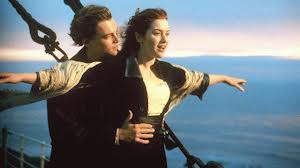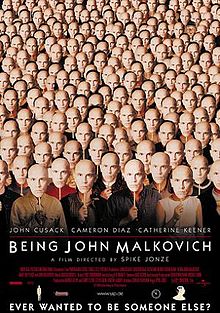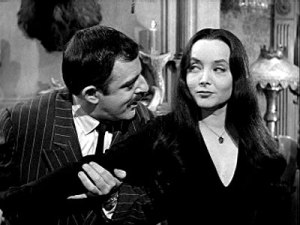Upon posting my second film review, I believe I am now an official blogger. ALL RIGHT! Now, where is my certificate that I can hang up around the office…?
I still have a lot to figure out in terms of setting up a system for doing these film reviews. I would like to become more consistent in posting blog entries, but that of course just means I have to choose not to be lazy and actually write these things up. Compared to other film reviewers I see, I think I am going to be doing something a little bit different with my blog; instead of reviewing current films, or classic movies, I plan to write reviews for movies right after I see them. So really this is like a travel blog… Except I’m backpacking through different genres and time periods vs. quaint European villages. With that being said, most of the movies that I am going to review are based off of watching a movie for the first time. Of course, if I re-watch a certain movie, I’ll review that too, except the analysis might be more in-depth.
When choosing new films to watch, I like to go on a “gut-feeling” – as in, I have to be in the mood for a certain type of film. (I’m horribly picky like that.) Sometimes I want to watch a movie with a certain actor, or from a certain time period, or simply because it is one of those movies that I supposedly “NEED TO WATCH BEFORE I DIE OF ELSE I WONT GET INTO HEAVEN.”
Apparently the other day I was in the mood for a little Hitchcock. 
Maybe because as a “film lover” I felt guilty that I haven’t exposed myself enough to the Master of Suspense. The only other Alfred Hitchcock film that I have see was Rebecca, which was oh so many years ago.
Now that I think about it, that might have been the first movie where I realized that symbolism could be incorporated into a film much like symbolism in a book. (“Whoa, holdup: is it possible that the final shot a burning pillow with an embroidered ‘R’ MEANS SOMETHING SIGNIFICANT??!?”) Until that point, I thought a movie was just supposed to be entertaining. Granted, essentially all films SHOULD be entertaining – at least in my opinion – but I never realized that they could be deep too.
With Dial M for Murder, I wasn’t sure what to expect. Except, you know, that someone was going to be murdered and that someone was going to be using the telephone. If at least one of those elements didn’t come to fruition, I was going to be pissed.
In the opening scene we are introduced to the character Margot Wendice (Grace Kelly) as she enjoys a meal in her London flat with an American crime-fiction writer, Mark Halliday (Robert Cummings.) Margot is married to Tony Wendice (Ray Milland,) who used to be a professional tennis player before he retired at Margot’s request, supposedly because his career made him too busy to spend time with her. Despite having obeyed her wishes, the audience soon discovers that Margot was still unsatisfied with her marriage, which lead her to start an affair with Mark.
Right off the back I knew that Grace Kelly was going to die.

I mean look at that blood-red dress. The chick is practically begging to get off’d.
This is the first Grace Kelly role I have ever seen, and I must admit, I anticipated a much more engaged performance. I felt as though she wandered around the film too much and didn’t seem to be actively involved with the action that was happening around her. Now that could also just be the nuance of the character, or perhaps Margot Wendice isn’t the best film role to judge her on.
On related note, this film also introduced me to Ray Milland, and I was completely amazed by his performance. His character, Tony, arrives back home from business to find Margot and Mark just about to head out to see an opera. Mark is introduced as “a visiting friend,” and the two ask if Tony would like to join them on their outing. He declines, saying he has some work to attend to. Once Tony is alone, he calls a man by the name of C.A. Swann (Anthony Dawson) under the pretense that he wishes to buy a car from him. However once Swann arrives at the flat to discuss the purchase, Tony reveals his true motives.
Tony explains that he has been recently following Swann around town – and “following” here really means “stalking intensely” – in order to learn about all of his day to day activities. With an alarming coolness, Tony reveals that he knows that Swann is a petty criminal that has managed to elude the authorities by constantly changing his name. Nervous, Swann asks what Tony plans to do with this information. Naturally of course, Tony intends to blackmail Swann into killing his wife.
This is the point in which Ray Milland started to freak me out a little. As he sits calmly in an arm chair, he tells Swann that he has known for some time that Margot has been cheating on him. He is concerned about this affair because Margot is an incredibly wealthy woman, and it is this wealth that persuaded Tony to marry her in the first place. Especially now that Tony is no longer working as a professional tennis player, the affair could eventually terminate his main source of income and affluent lifestyle that he has become accustomed too. It is out of this resentment, greed, and overall irritation with his wife that has caused Tony to believe that the only way to feel a sense of resolution with the situation is to kill her.
What is especially creepy about Tony’s character is that while he is explaining to Swann exactly how he wants Margot killed, it is obvious that this plot did not happen spontaneously. Through Milland’s performance, you can tell that Tony has spent countless hours sitting in bars and walking through parks contemplating – scenario after scenario – the best way to carry out the deed. Tony moves about his flat showing Swann exactly what he must do to execute the murder. Through the bird’s-eye angle of the camera, the audience gets a sense of how Tony has envisioned the murder in his mind. Getting this “inside look” into the villain’s head proves to be especially discomforting because the morally-conscious viewer knows that essentially, these extremely well thought out plans cannot be justified.
Who is more at fault in this situation? Margot, who has committed the sin of adultery? Or Tony, who, despite forcing another to commit the actual sin, is essentially the real killer through his careful premeditation? It’s these types of philosophical questions that lead me to think about another film that deals with adultery and murder, Woody Allen’s Crimes and Misdemeanors. Of course in that film, the killer experiences extreme feelings of guilt for his actions. Tony on the other hand has completely convinced himself that murder is the best option for his situation. Margot being unsatisfied with her marriage makes her human; Tony willing to do anything to kill an innocent woman makes him psychotic.

Not the craziest Hitchcock character, but still pretty damn messed up.
Tony tells Swann that he wants the murder committed the following night. The plan is for Swann to sneak into the flat while Mark and Tony are away and Margot is asleep. Tony will then call the flat knowing that Margot will wake up and answer the phone. While she is distracted with the call, Swann will come up behind her and strangle her to death.
Throughout the monumental evening, many complications ensue that disrupt Tony’s plans, such as Margot initially not wanting to stay home by herself. Tony is able to think quickly and solves all of the problems with a devious flair. Again, this proves that Tony is a determined killer and not just a simpleton acting on rash impulses. It is this use of intellect that makes Tony’s actions and reasoning all the more unacceptable.
Soon the plan is set in motion: The phone rings, Margot awakes to answer it, stands there for an absurd amount of time repeating, “Hello? … Hello?”

Maybe if you ask nicely for the umpteenth time, someone might EVENTUALLY respond.
Swann takes his cue to strangle Margot to death. But not before she picks up a pair of scissors off the desk and stabs Swann in the back.
Oh. OH WAIT WHAT? SHE’S NOT DEAD? BUT SHE WAS WEARING RED! BLOOD RED EVEN! SHE WAS DESTINED TO DIE!

I see what you did there. Well played, Sir, well played.
Instead of giving up, Tony continues to find ways to make the best of his situation. As an investigation begins concerning Swann’s death, Tony manipulates everything (from evidence to the whole crime scene) and everyone (from the police officers to his wife.) All of these actions are in an effort to accomplish his ultimate goal of ending Margot’s life one way or another. And, you know, if he manages to not get caught with his crime, well then that’s just a perk.
The second half of a movie is a horrible bore. Usually in tales of fiction, the word “murder” is almost in direct correspondence to the word “mystery.” Certainly there is a mystery within the film, as a detective (John Williams) begins to uncover the true nature of Swann’s death. But the audience already knows who killed Swann. This crucial fact takes the fun out of watching the detective try to solve the mystery. In a smart way, it is interesting to see how the detective’s intellect works in parallel to Tony’s own scheming thought process, as both are quite impressive. However, in comparison to the thrill and intrigue of the first half of the film, it is not interesting enough.
Dial M for Murder is one possible answer as to how someone can commit the perfect murder. What makes the act of murder “perfect” is not necessarily in the art of how the deed is carried out, but whether or not the culprit is caught. Being “caught” carries a different weight depending on where a person lives. In the setting of this film, if a person is found guilty of murder they are sentenced to the death penalty. If Tony lived in a society where he simply would have gone to jail for his actions, I wonder if he would have worked as hard as he did in order to retain his “innocence.” Nonetheless, the movie makes me wonder if murder ever is really worth it. Is there a great enough reason for someone to kill another human in which the sin of the act would be worthwhile? Certainly not in Tony’s case – though perhaps if I too had a psychopathic mind, I might be able to sympathize.
The film presents and intriguing question, but due to the overall stagnant nature of the film, it lacks the ability to become truly memorable. In other words, it’s a very “British” way of handling the subject of murder. By “British,” I suppose I mean that it is very polite and civilized, without any dirty, raw, unformulated mechanics. Also by “British,” I mean to say that the film is so lack-luster that I could easily sip a cup of tea and nod my head in contemplation of the film’s premise, versus clutching the little tea cup handle because the intensity of the film has ceased function of all of my basic motor skills. If that makes any sense at all.
RATING: 2/5
***
Dial M for Murder
1954
Director: Alfred Hitchcock
Starring: Ray Milland, Grace Kelly, Robert Cummings
Writers: Frederick Knott (screenplay/adapted from his play)
Distributor: Warner Bros. Pictures




















